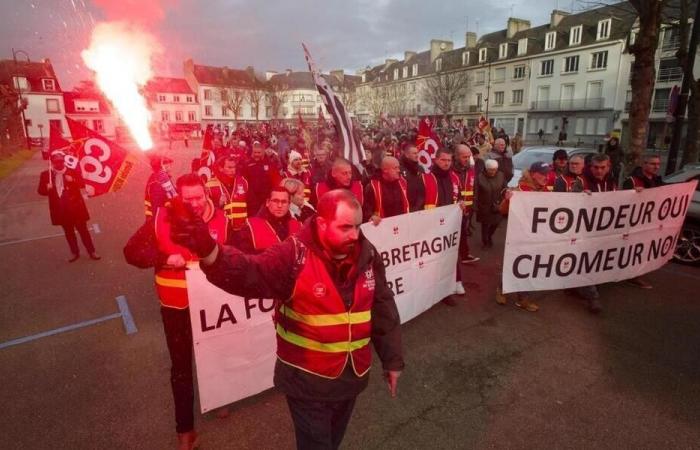After his election in 2017, Emmanuel Macron made “the mother of all battles”. Even if it means neglecting or postponing the restoration of public finances. With 280 net creations of factories between 2017 and 2023, the challenge of reindustrialization, without being won, seemed to be on the right track.
France has long made the revival of consumption the magic formula intended to support the economy in the event of a crisis. This policy has not only widened the trade balance deficit. Associated with excessively heavy taxation weighing on the productive system, it has contributed to deindustrialization and relocations.
2 million jobs created since 2014
Since the Gallois report in 2012, this is no longer a taboo subject. Priority to production based on a reduction in corporate taxes, the relaunch of apprenticeship, a reflection on production taxes and a stabilized normative and regulatory environment. Allowing France to regain its attractiveness. But also to create 2 million jobs since 2014. In certain regions, industrial territories are an object of pride.
The current political instability, with four Prime Ministers over the past year, is weakening France. The inability to find an agreement around the budget and the difficulty in building a government majority create a fog that is not conducive to risk-taking and investments. In this uncertain environment, two of the engines of the European economy, Germany and France, are facing headwinds, both politically and economically. Their potential growth (over a long period) is now around 1%.
Both countries are suffering. The only difference: Germany can count on a healthier budgetary situation to recover. France, for its part, needs to avoid falling back into the habit of changing legal and tax rules. And not to abandon efforts in favor of learning and research while better targeting beneficiaries. Without giving up saving money.
The engine of tomorrow’s wealth creation
Comparable to that of our neighbors, our social model costs more, recalls the governor of the Bank of France: 57.7% of gross domestic product (GDP) on the one hand, compared to 47.7% on average for the euro zone . A gap estimated at 260 billion euros.
Room for maneuver exists, without having to sacrifice policy in favor of industry, for at least three reasons.
1. Industry is the engine of tomorrow’s wealth creation.
2. Jobs there are rather better paid than in services and remain a factor for social advancement.
3. Factories are most often located in rural areas or medium-sized towns.
On this subject, France has come a long way. She remains convalescent and is not immune to a relapse. The national scale will not be sufficient. To go further, France will also need Europe. This involves the creation of a large European savings and capital market to finance new investments in infrastructure and decarbonization; part of European savings is today invested in the United States. Finally, this battle for competitiveness will also be played out on energy. A fragility highlighted with Russia’s invasion of Ukraine.






